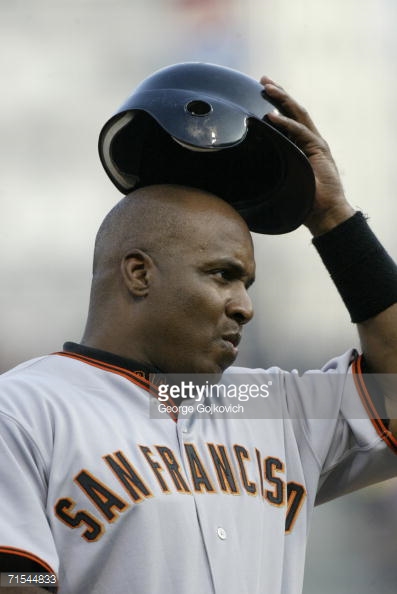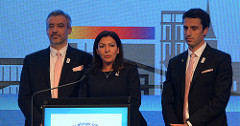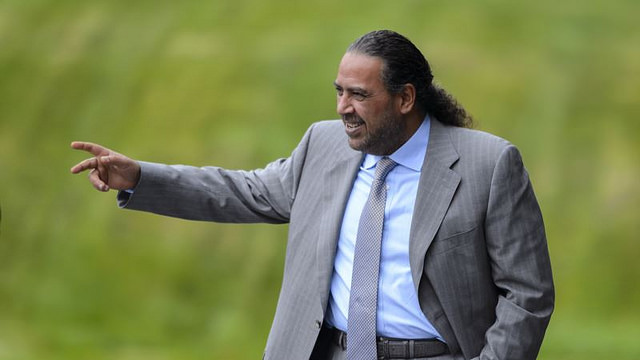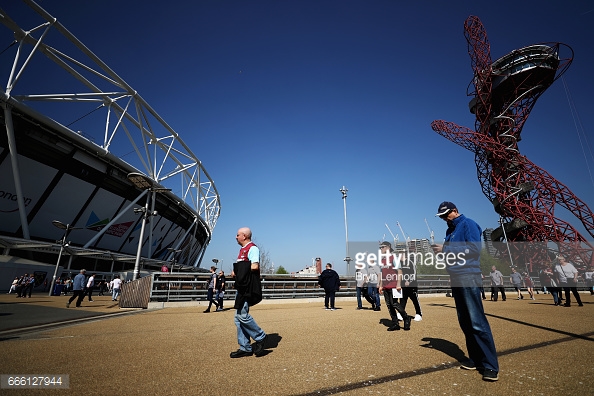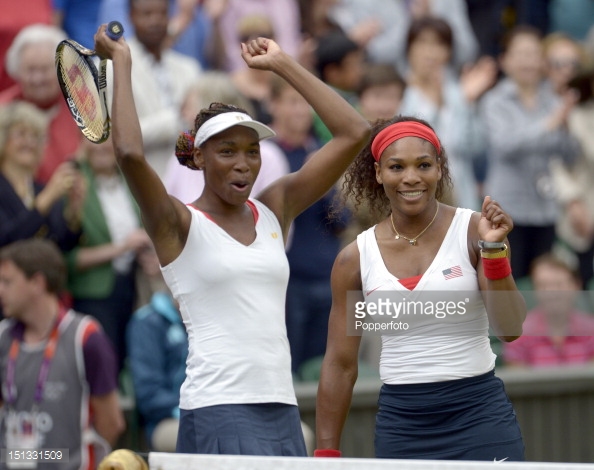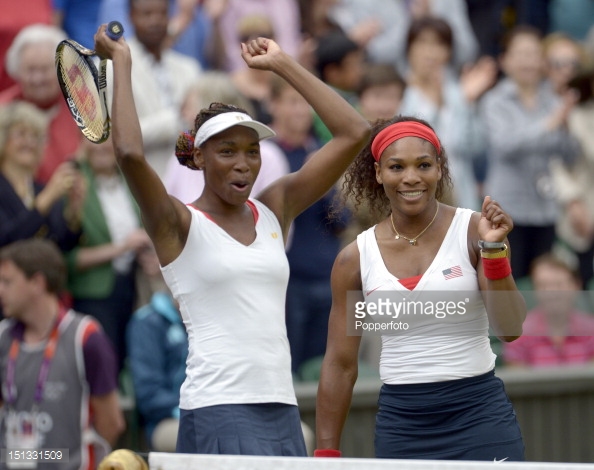If you are hung up on figure skating, OK, but maybe get with the program: the Olympic Winter Games has indisputably become a ski and snowboard festival.
Next February in South Korea, there will be 102 medal events. If you don’t count biathlon, 50 will be on skis or snowboards. Add in the biathlon ski-and-shooting combo, and you’re up to 61.
All of this is hugely interesting when considering Stockholm’s announcement Wednesday that, in considering the 2026 Winter Games, the International Olympic Committee can go freeze itself. Stockholm is out before it ever got in. Just like 2022. It’s out.
Our European friends keep telling the IOC versions of this. They’re out.

"Why,” the IOC vice president Juan Antonio Samaranch Jr. was quoted as saying about a month ago by the Spanish news agency EFE, “is it so difficult for us to get the message out that the Games are something positive?”
The answer is simple: taxpayers don’t believe it.
More to the point: they don’t believe the IOC.
Even more bluntly: to a great extent, they just don’t trust the IOC.
If they did, cities and nations would be lining up for the chance to stage the Games. Instead, they’re dropping like flies — dropping out midway through the campaigns, like candidates have done through the 2024 Summer and 2022 Winter Games derbies, or bowing out now, as Stockholm did Wednesday for 2026.
It’s ugly and painful and awful for the IOC.
It’a also reality, and the sooner the IOC admits this reality, acknowledges beyond just words that it has a problem, the sooner it can confront it and take up the change that, whether it likes it or not, must be implemented.
Stockholm’s decision came just a day after IOC president Thomas Bach, speaking at a meeting in Uruguay of the Pan American Sports Organization, pointedly noted that the IOC has fat sponsor deals that run into the 2020s and 2030s even as he said the IOC “cannot ignore that we have an issue with the candidature process.”
He added a moment later:
“… The good old times are over with regard to [the] candidature procedure.
"Today hardly any mayor or political authority can go to their population and say, 'Let's try again, and maybe we will win,’ after spending millions on an unsuccessful bid.
"Maybe it will change back in five or 10 years. But it is not possible today."
There is a remedy, which involves coming to the United States, and Los Angeles, for 2024. If only the IOC will listen.
It’s not clear that it will, LA and Paris the only two cities in the 2024 race, purportedly to be decided later this summer.
This is a logic problem, and it is easy to solve, because the IOC — more than anything right now — needs seven years of peace amid every red warning sign taxpayers in western democracies, particularly in Europe, the IOC’s traditional base, keep handing up.
Like the one Wednesday in Sweden.
From several insider accounts, though, the IOC is apparently having a very difficult time grasping the logic of the logic.
Why?
Because IOC leadership, members and staff tend far too often to live in a bubble in which the change they need to effect — and that change manifestly is unequivocally necessary — gets wrought amid crisis instead of the way it should come about, through best practice while its key franchise, the Summer Games, sits in calm, solid hands.
As it would be in a privately run LA 24 — away from the government-financed, cost overrun-plagued editions in recent years that have gotten the IOC in the existential moment it faces now (Sochi 2014 at a purported $51 billion the loss leader).
Speaking of crisis:
Now that the first round of the French presidential elections is over, would the authorities there investigating the former president of the international track and field federation, Lamine Diack, have renewed interest — or not — in making public what they have learned over these past several months?
If gossip is to be believed and the names of this important IOC member from country x or that influential one from country y are ever leaked to the French press, what then?
What if the French authorities, knowing what is believed they know, sit on that information until after the September 13 vote for 2024? What then?
You want more credibility problems? You want yet more crisis?
To be clear:
The Olympic movement inevitably carries with it any number of problems. Any enterprise its scale and scope does. But right now, it is confronting a grave threat to its credibility if not its very existence.
In general, this space is not — repeat, not — anti-France or anti-Paris. Just the opposite. I lived in Paris in 1984; I was not even in Los Angeles during those Summer Games but, yes, in Paris. Above my desk in suburban Los Angeles is a picture of Mont Blanc, commemorating the IOC evaluation visit there in February 2011 for the 2018 Winter Games; I look at it each and every day.
Again, I love Paris and I love France. But 2024 is not the time for the IOC to go there. And as our friends in Sweden made plain, 2026 is not the time for them, either.
At issue is the ongoing relevance and vitality of the Olympic enterprise. Our broken world is so much better with the Olympics in it, even if the Games and the movement are — of course they are — flawed.
All of that has its roots in the bid system. Because it produces the cities, and the cities are the stage upon which the athletes star. Those athletes inspire kids all over our world to dream big dreams.
To that end, the IOC has got to fix — that is, scrap and start all over with — its bid process. That process used to work. It does not now.
And the signals have been there for years.
For 2024, Budapest, Rome and Hamburg have all dropped out.
In the 2015 race for the 2022 Games, five European cities pulled out along the way: Stockholm, Davos/St. Moritz, Oslo, Munich and Krakow. Taxpayers or officials would have nothing to do with it.
For 2022, voters in Davos/St. Moritz said no via referendum by 53 percent.
This winter, asked about 2026, voters in Davos/St. Moritz said no via referendum by 60 percent.
That’s a bad trend line.
If you are the IOC, here is the really discouraging part: that 2026 vote in Davos/St. Moritz came as the 2017 world championships in alpine skiing were going on there.
So everything was set up for success: the ski world championships — again, the sport that is now the core of the Winter Games — were a party, the après-ski was all the more so and … voters said no, in a blowout.
Stockholm? Same kinda deal. Except for maybe the après-ski.
Are, Sweden, is the site of the 2019 alpine world championships. In any Stockholm Winter Games bid, Are would figure to play a major role.
Here’s the thing that underscores in no uncertain terms the IOC’s credibility challenge:
For Sochi, the IOC announced, and many times, it would give local organizers $800 million. In fact, it ended up giving the organizing committee $883 million. The Sochi operating budget, to be clear, is a fraction of the $51 billion commonly associated with the Games.
The IOC has failed miserably at communicating that basic fact.
It also has failed abjectly at communicating the fact that it currently gives organizers of a Winter Games somewhere in the neighborhood of $800 to $900 million — once more, for clarity, toward operating budgets typically in the $2 to $4 billion range.
Indeed, for the PyeongChang 2018 Games, though the exact number will remain uncertain, the working figure is $850 million.
For the 2022 Beijing Games, the IOC’s announced figure is $880 million.

For all that, the mayor of Stockholm, Karin Wänngard, who also oversees municipal finances, said Wednesday the city had no choice but to back out of 2026 because the IOC is not able to immediately say how big the financial contribution to the host city will be, according to an Associated Press report.
She said the figures “will arrive at the earliest in November,” adding, “This means that time will be too short to get enough analysis for the issues raised by several actors.”
One, if Stockholm wanted to get in, it surely could, because November 2017 is a long way from 2026.
Two, even a sports writer can figure this out. If it was $800 million in 2014, $850 million in 2018 and $880 million in 2022, odds are pretty good you’re looking at, hmm, $900 or maybe $920 million for 2026.
What, you need it down to the penny? Ballpark me for now — let’s say $900 million, cool — and get back to me by November.
But no. Freeze off, IOC.
Why?
In Europe, the evidence is clear: the IOC has significantly forfeited that level of trust with officials and the taxpayers those officials represent.
So the mayor of Stockholm used the “we don’t know how much money we might get” dodge to tell the IOC that in Sweden there isn’t enough interest or political capital to risk Olympic business.
Don’t kid yourself and think that the situation is, would be, will be or ought to be different in France. The Budapest situation — killed in just weeks by a referendum driven by social media, even though every level of government backed the bid — ought to serve as a major warning to the IOC.
In that same speech Wednesday in Uruguay, Bach also said:
“What we have seen is a change in the decision-making procedures in different countries, particularly in Europe but also elsewhere.
“I do not need to go into detail about how the Olympic Games is used for political purposes by groups in some countries.
“We have to understand that our candidature procedure is giving arguments for this, as it is too expensive and too complicated …”
This, then, is the hole the IOC has dug itself.
To reiterate: LA24 is different. It is privately funded. There’s no agitation to get agitated about when it comes to government funding.
That’s why LA offers the IOC, right now, the one calm, rational pathway: peace for seven years — stability and time to bring in the world’s best minds to think about how to fix a broken bid process.
Alternatively, there’s the other path for the IOC.
It’s called crisis.






